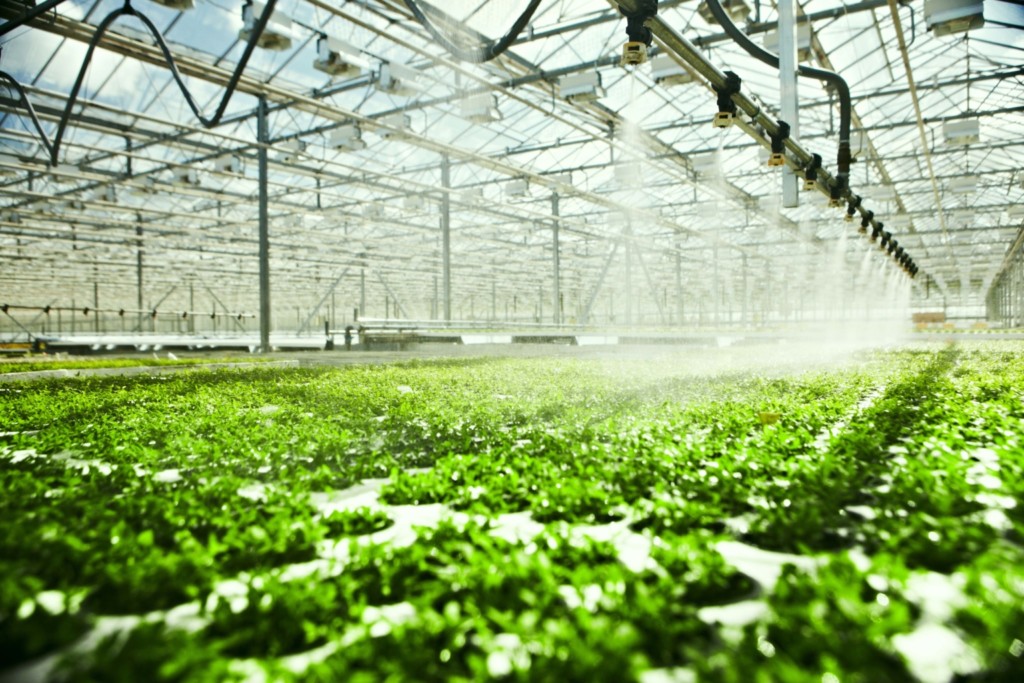How international trade agencies help businesses go global
Taking the first step to going global can be intimidating for any Australian business but there’s plenty of support to ensure a ‘soft landing’ – if you do your homework.
Agrifood tech is about finding solutions to problems, but entering overseas markets can create challenges of its own. So where do startups look first to ensure a smooth passage into international waters?
Seeking help at home is the best way for Australian startups, SMEs and scaleups to map out their journey with tangible support and research offered through trade agencies – and it’s free.
The Australian Government’s trade and investment commission, Austrade, has 85 offices in 50 markets around the world, designed to promote home-grown innovations, help businesses expand their footprint and make meaningful global connections.
“There are so many markets out there that are really hungry for great solutions, and we can help you find the right market, and connect with other services like DIT,” said Arianna Sippel, Austrade senior advisor and agtech lead, based in Sydney.
DIT, or the Department for International Trade, is a UK government organisation with a strong presence in Australia, working closely with Austrade to create innovation pathways for trade and investment opportunities.
Tess Thomas, DIT Director of Investment for Australia and New Zealand, highlighted that the department has offices in every major state across Australia and New Zealand.
“We’ve actually hired five specialists, so these are people from industry who work part-time for the UK government, and can plug you into the right networks, in both industry and government, to help you grow,” said Tess.
Global networks key to accelerating business growth
The COVID-19 pandemic has made it difficult for startups to establish new markets, with international travel and face-to-face meetings restricted, but this doesn’t have to be a barrier to launching overseas.
While many of the staff in Austrade’s overseas offices are currently working from home, Arianna said the help is still available and the network’s reach is just as extensive.
“We’ve got great resources on our Austrade website, and we also have some great advisory service people to help you.”
Whether businesses are seeking financial support, tracking down contacts or looking for hard-to-find information, there’s a plethora of tools to keep the journey on track.
Do your homework to maximise impact
Tess reminds all businesses, whether they’re startups, scaleups and SMEs, that there’s a lot of homework to do prior to actually setting up in the UK (or anywhere overseas).
“We can actually do a lot of market research,” said Tess.
“It’s understanding what is your competitor environment, who are your customers, where do you want to go in the UK, and then we help you map that out, and do a virtual program. At the moment we’re doing virtual visits, and they’re working really well.”
Arianna said that with so many potential markets out there, it’s really about defining what’s right for you and whether your chosen market has a justified need and appetite for your product.
“Which goes back to what’s your business strategy? What are you trying to achieve? Where does export, and that international growth, fit in your story?”
Austrade can help businesses think deeply about what you need to have in place to be able to successfully launch overseas.
“That might be finding out about support for finance,” Arianna said. Or weighing up the pros and cons and ease of access to specific markets. While larger markets may seem appealing, Arianna posed questions like, “Where am I going to cut my teeth, and where am I going to trial this?”
RELATED ARTICLE: Setting the scene: The UK agritech market opportunity
For agritech solutions focused on cattle and livestock industries, Arianna said, the United States, Brazil and Europe are the likely key markets, along with Africa.
“If someone’s looking to solve solutions for the grain sector, then again markets like, Canada, and the US, and Europe are also going to be really popular,” she said.
“We do find a lot of companies also looking to the UK, thinking of it as a great opportunity for counter-seasonal trials and to start developing out their network.”
UK’s rising agritech investment opportunity

The global agritech sector is set to be worth $217 billion GBP by 2021, with agrifood startups attracting major backing, $3.1b GBP, in the first half of 2017.
This is a growing trend, Tess notes, as more agritech companies tap into the UK market.
“We’re seeing trends in urban farming, robotics, precision agriculture and medicine as well,” Tess said.
Farm management software company, AgriWebb and Safe Ag Systems, are two great examples, of how Australian agritech startups can strategically tap into UK’s burgeoning agritech market.
RELATED ARTICLE: AgriWebb’s investor journey to the UK
There are some really good incentives too, Tess said, as the UK government has a clear strategy for agritech and continues to invest more in the sector, with a rising emphasis on food security.
“The UK has got a really progressive government so there’s some great tax incentives. The corporation tax is 19% and the research and development tax credits are really favourable.”
“You can actually get 130% deduction on your tax if you are an SME in the UK.”
Inbound agritech companies to Australia
The inward flow of agritech companies into Australia is also strong, said Arianna.
“The Australian agricultural sector is so much bigger than people might think.” The population may be small, but we’re very innovative, she added.
“We have a lot of great government support at both the federal and state government level, encouraging either investment into research and development through, or in partnership with Research and Development Corporations (RDCs) like, AgriFutures, GRDC and Meat & Livestock Australia.”
“We see agriculture, as such a huge opportunity,” Arianna said.
“We’re certainly getting behind, and trying to help that sector grow and blossom, and really have Australia be a global connected hub for innovation in that space.”
Listen to the podcast
So where do Australian startups, SMEs and scaleups look first to ensure a smooth passage into international waters?
Well, the best place to start is right here at home, through trade agencies that offer tangible support and market research – and it’s free.
Whether businesses are seeking financial support, tracking down contacts or looking for hard-to-find information, there’s a plethora of tools to keep the journey on track.
So we’ve teamed up with Austrade and the UK Department for International Trade (DIT) to learn more about what this journey looks like, and how exactly trade agencies can help you expand your footprint and make meaningful global connections.
We hear more about this from Arianna Sippel, Austrade’s senior advisor and agtech lead and Tess Thomas, UK’s DIT director of investment for Australia and New Zealand who recently caught up with Lyndsey Douglas in Sydney.
Enjoyed this story? Want to learn more about the Asia Pacific region’s innovative agrifood tech ecosystem? Sign up for our newsletter here and receive fresh stories about global leaders, farmers, startups and innovators driving collaborative change.
